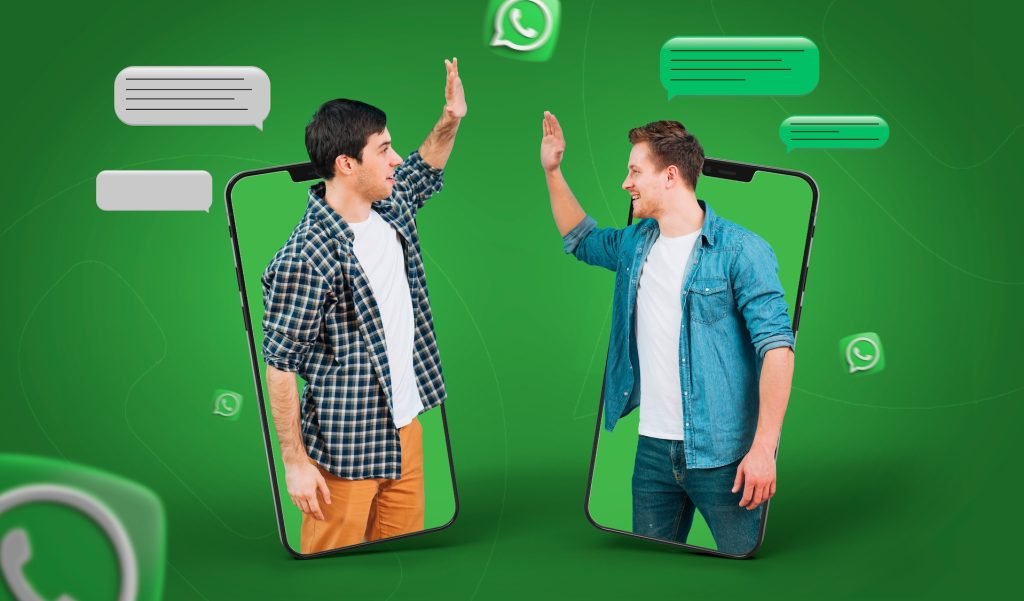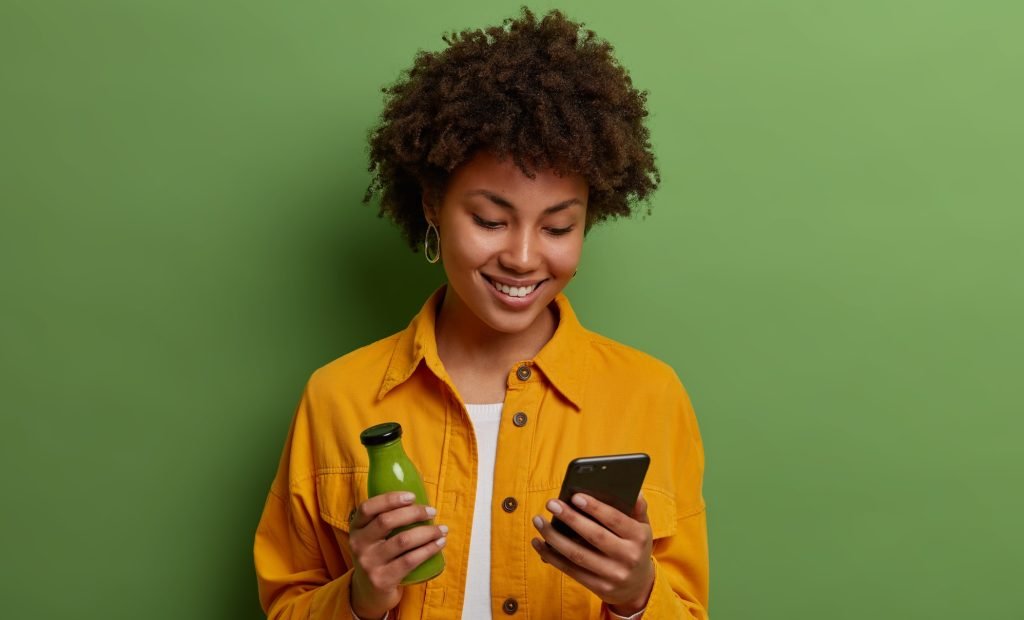Are you tired of traditional marketing strategies not yielding the desired results? It’s time to explore the potential of WhatsApp marketing. With over 2 billion users worldwide, this messaging platform offers an unprecedented opportunity for businesses to directly engage with their target audience using whatsapp marketing strategy and whatsapp retargeting campaigns as a communication channel.
From personalized customer interactions to cost-effective promotional campaigns, WhatsApp marketing has revolutionized how brands connect with consumers using chat and message templates as a communication channel. We will discuss practical tips on leveraging this powerful tool, whatsapp marketing strategy, to drive sales, enhance brand visibility, and build customer loyalty. Stay tuned as we unravel the secrets behind successful WhatsApp marketing strategies that can propel your business with chat, campaign goals, and customer care towards unparalleled growth and success.
Decoding WhatsApp Marketing
WhatsApp marketing involves various strategies, message to effectively reach and engage with the target audience. By leveraging WhatsApp for targeted marketing campaigns, businesses can send personalized messages, offers, and updates directly to their consumers’ phones.
Integrating WhatsApp into omnichannel marketing strategies allows businesses to create a seamless customer experience across different platforms and message consumers. For example, the marketing team can use WhatsApp to follow up on leads generated from social media or email campaigns.
Utilizing WhatsApp for personalized marketing content means tailoring messages based on user preferences or behaviors. This could include sending product recommendations or providing exclusive discounts to loyal customers through whatsapp retargeting campaigns.
By incorporating these WhatsApp marketing strategies, businesses can enhance their overall marketing efforts by reaching shoppers and achieve higher engagement rates compared to traditional channels.
Customer Engagement

Enhancing customer engagement through interactive WhatsApp features and marketing strategy is crucial for building lasting relationships. Businesses can use interactive elements such as polls, surveys, and quizzes within WhatsApp chats to gather feedback and opinions from customers.
Providing real-time support and assistance via WhatsApp enables businesses to offer immediate help when customers have queries or issues. This fosters trust and demonstrates a commitment to excellent customer service.
Using WhatsApp to foster meaningful conversations with customers involves more than just promotional messaging; it’s about creating valuable interactions that go beyond sales pitches and campaign.
WhatsApp Business Features
Exploring the diverse features offered by WhatsApp Business provides businesses with powerful tools for managing customer communications. With business profiles, labels, quick replies, and WhatsApp campaign, companies can streamline their messaging processes while maintaining professionalism.
Leveraging catalog and product showcase features on WhatsApp Business allows businesses in e-commerce or retail sectors to showcase their products directly within the app. This simplifies the browsing process for potential buyers who prefer visual representations of products before making a purchase decision.
Crafting Marketing Messages
Message Personalization
WhatsApp marketing involves customizing messages to cater to individual customer preferences and launching campaign. Implementing dynamic content personalization in promotional messages and campaign can significantly boost engagement. For instance, sending personalized product recommendations based on a customer’s previous purchases or interactions with the business can enhance the relevance of the message.
Crafting tailored messages based on customer behavior and interactions is crucial for effective business messaging on WhatsApp. By analyzing user data and understanding their preferences, businesses can create targeted messages that resonate with each recipient. For example, a clothing retailer might send different styles of outfits to customers who have shown interest in specific categories.
Effective Communication
Ensuring clear and concise communication through WhatsApp messaging is essential for successful WhatsApp marketing efforts. Using simple and straightforward language helps convey the intended message without confusion. Moreover, establishing effective two-way communication channels with customers allows businesses to address queries promptly and build stronger relationships.
Multimedia content plays a pivotal role in impactful communication on WhatsApp. Incorporating images, videos, or audio clips into promotional messages enhances their visual appeal and engagement potential. For instance, a restaurant promoting its new menu items may share appetizing photos or short video clips showcasing the dishes to entice customers effectively.
Broadcast Lists Usage
Leveraging broadcast lists enables businesses to conduct mass communication while maintaining personalization in their business messaging strategy on WhatsApp. By segmenting contacts into specific lists based on demographics or interests, companies can send targeted messages tailored to each group’s preferences efficiently.
Sending targeted messages to specific customer segments via broadcast lists ensures that recipients receive relevant information aligned with their interests or purchase history. This approach prevents inundating subscribers with irrelevant content while maximizing engagement by delivering personalized updates related to their needs.
Managing broadcast lists efficiently is vital for effective outreach on WhatsApp as it allows businesses to streamline their communications seamlessly across various customer groups.
Audience Segmentation
Segmentation Implementation
Implementing audience segmentation is crucial for targeting specific customer groups on WhatsApp. By utilizing customer data, businesses can effectively segment their audience based on demographics, behavior, or preferences. For instance, a company selling both men’s and women’s clothing can segment its audience by gender to tailor marketing messages accordingly.
Utilizing customer data allows for precise segmentation in WhatsApp marketing efforts. This involves analyzing the information gathered from customers’ interactions with the brand and using it to create targeted campaigns. For example, if an online bookstore collects data showing that a group of customers frequently purchases science fiction novels, they can create specialized promotions for this audience.
Tailoring marketing messages based on segmented audience characteristics is essential for effective communication. For instance, a fitness center may send workout tips and exercise videos to engaged customers while offering discounted membership rates to inactive subscribers through WhatsApp.
Higher Conversion Rates
Optimizing conversion rates through persuasive messaging is vital in WhatsApp marketing. Using compelling language and appealing visuals within WhatsApp messages can encourage potential customers to take action. For example, including limited-time offers or discounts in promotional messages often leads to higher conversion rates.
Implementing call-to-action strategies plays a significant role in driving conversions via WhatsApp. Including clear instructions such as “Shop Now,” “Learn More,” or “Book Appointment” prompts recipients to engage further with the brand’s offerings directly through the app.
Tracking and analyzing conversion metrics is essential for continuous improvement in WhatsApp marketing endeavors. Businesses should monitor key performance indicators (KPIs) like click-through rates and actual sales resulting from WhatsApp campaigns. By identifying which segments are responding most positively to their efforts, companies can refine their strategies for even better results.
Integrating WhatsApp in Ads
Direct to WhatsApp Ads
Direct-to-WhatsApp ads offer a seamless way to engage with potential customers. These ads allow businesses to connect with users directly on the WhatsApp platform, streamlining customer engagement. By leveraging ad placements that lead users straight into WhatsApp conversations, businesses can establish more personal and direct communication channels. This approach enhances ad targeting capabilities, ensuring that businesses reach out to the right audience at the right time.
For example, an e-commerce company can use direct-to-WhatsApp ads to promote a new product launch. When users click on the ad, they are instantly connected to a WhatsApp chat where they can inquire about the product or make a purchase. This immediacy and convenience enhance user experience while providing businesses with valuable opportunities for customer interaction.
Furthermore, by using direct-to-WhatsApp ad formats, companies can tailor their marketing messages based on user preferences and behaviors. This personalized approach fosters deeper connections with customers and increases the likelihood of conversion.
Retargeting Campaigns
Implementing retargeting campaigns on WhatsApp is an effective strategy for reengaging potential customers who have shown interest but not yet converted. Businesses can leverage retargeting ads on WhatsApp to bring back abandoned cart users by sending reminders or exclusive offers directly through private messaging.
For instance, a travel agency could utilize retargeting strategies on WhatsApp by sending personalized messages offering special discounts or additional information about destinations that users previously showed interest in. This tailored approach helps reignite interest and encourages potential customers to take action.
Customizing retargeting strategies for effective outreach on the WhatsApp platform allows businesses to stay top-of-mind without being intrusive. By delivering relevant content at opportune moments through retargeted ads, companies can nurture leads effectively and guide them towards making a purchase decision.
Post-Purchase Engagement
Automating Notifications
Streamlining notification processes through automated messaging on WhatsApp can significantly enhance post-purchase engagement. By implementing automated notifications for order updates, appointment reminders, and other relevant information, businesses can keep their customers informed in a timely manner. For instance, when a customer places an order or schedules an appointment, a quick automated message confirming the details can provide reassurance and build trust. Utilizing chatbots for these notifications ensures seamless communication and allows businesses to respond promptly to customer inquiries.
Integrating automated messages into the post-purchase process not only enhances customer experience but also reduces the burden on manual resources. This approach enables businesses to maintain consistent communication with their customers without overwhelming them with unnecessary messages. For example, sending automatic updates on the status of an online purchase keeps customers informed without requiring individual attention from staff members.
Introducing Loyalty Programs
Implementing exclusive loyalty programs through personalized offers on WhatsApp is an effective strategy for nurturing long-term relationships with customers. By rewarding loyal patrons with special incentives delivered via WhatsApp messages, businesses can demonstrate appreciation for their continued support while encouraging repeat purchases. These personalized offers could include discounts, early access to new products or services, or bonus rewards based on past purchase history.
Loyalty program promotions via WhatsApp allow businesses to engage directly with their most valuable customers in a more personal and targeted manner. Sending tailored messages regarding loyalty rewards makes customers feel valued and appreciated while fostering a sense of exclusivity associated with being part of the loyalty program community.
Leveraging Automation Tools
AiSensy for Marketing
AiSensy’s AI capabilities are revolutionizing whatsapp marketing by automating advanced marketing strategies. By harnessing AiSensy’s analytics, businesses can optimize their marketing efforts on the platform. The AI-driven insights provided by AiSensy enable targeted and effective whatsapp marketing campaigns.
For example, a clothing brand can use AiSensy to analyze customer interactions and preferences to personalize their WhatsApp marketing messages. This level of automation allows businesses to engage with customers in a more tailored manner, increasing the likelihood of conversion.
Implementing AiSensy’s technology provides businesses with the opportunity to create personalized experiences for customers through automated processes. Utilizing such advanced tools not only saves time but also ensures that each interaction is meaningful and impactful.
WhatsApp API Utilization
Maximizing business potential involves integrating third-party apps using the WhatsApp API. By leveraging this official API, companies can streamline customer interactions while enhancing overall business operations.
For instance, an e-commerce company could integrate the WhatsApp API into its system to provide order updates and shipping notifications directly through WhatsApp messaging. This seamless integration enhances customer experience by providing real-time information within a familiar communication channel.
Furthermore, utilizing the functionalities of the official API enables businesses to automate various aspects of customer service such as responding to frequently asked questions or processing orders efficiently. This level of automation not only improves operational efficiency but also enhances customer satisfaction through prompt and accurate responses.
Building a Brand Persona
Designing Brand Communication
Crafting brand-specific communication strategies tailored for the unique environment of WhatsApp is crucial. Tailoring messages to resonate with your audience on this platform is essential for effective marketing. Establish a consistent brand voice across all communication channels, including WhatsApp, to ensure that your brand’s personality remains recognizable and authentic.
Creating visually appealing and engaging brand content for effective communication on the platform is vital. Visuals play a significant role in capturing attention and conveying messages quickly. Utilize images, videos, infographics, or GIFs that align with your brand persona to enhance engagement with your audience.
For instance:
If you have a playful and lighthearted brand persona, using colorful visuals and humorous content can reinforce this image.
On the other hand, if your brand persona leans towards being professional and informative, utilizing sleek graphics and educational content would be more suitable.
Setting Goals and KPIs
Defining measurable goals and key performance indicators (KPIs) specific to WhatsApp marketing will provide clarity regarding the success of your efforts. Whether it’s increasing customer inquiries or driving website traffic through WhatsApp links, setting clear objectives will guide your marketing strategy effectively.
Establishing benchmarks to track the success of various marketing initiatives implemented on the platform is essential. This allows you to compare performance over time accurately while identifying areas that require improvement or adjustment.
Aligning strategic objectives with quantifiable KPIs helps gauge the impact of WhatsApp marketing efforts accurately. For example:
If one of your strategic objectives involves improving customer engagement through personalized messaging, tracking response rates or interaction levels can serve as relevant KPIs.
Similarly, if expanding reach within specific demographics forms part of your strategy, monitoring new contact additions from these groups could be an important KPI.
Comparing SMS and WhatsApp
Integrating multiple platforms alongside WhatsApp can significantly enhance the overall marketing outreach. By incorporating social media, email, and SMS into the marketing strategy, businesses can effectively reach a larger audience. For instance, while WhatsApp may be ideal for personalized interactions and customer support, social media platforms like Instagram or Facebook can help in creating brand awareness on a broader scale.
Moreover, it’s essential to evaluate the effectiveness of different communication channels in comparison to WhatsApp. While WhatsApp allows for direct and instant communication with customers, email marketing might be more effective in delivering detailed information about products or services. Therefore, developing a cohesive strategy that leverages various communication channels while prioritizing the unique advantages of each is crucial for comprehensive marketing success.
In addition to this multi-channel approach, understanding how each platform contributes differently towards building brand persona will provide valuable insights into tailoring content specific to each channel’s strengths.
Conducting a thorough cost-benefit analysis of utilizing WhatsApp as a primary marketing channel is imperative for businesses aiming at maximizing their return on investment (ROI). Whether it’s using broadcast lists or leveraging chatbots for automated responses, evaluating the cost efficiency of various WhatsApp marketing strategies is essential in determining which approach yields the best results.
By identifying opportunities to optimize resource allocation within WhatsApp marketing initiatives and maximizing cost efficiency based on outcomes achieved through different strategies such as targeted advertising or promotional campaigns can help businesses allocate their resources effectively. This ensures that they are investing where they see maximum returns while minimizing unnecessary costs.
Furthermore, by comparing these costs against other traditional methods such as print advertising or television commercials will provide an insightful perspective on how beneficial utilizing WhatsApp is from both financial and strategic standpoints.
The Future of WhatsApp Commerce
WhatsApp marketing presents an incredible opportunity for businesses to tap into a largely untapped market. By harnessing the power of WhatsApp, companies can explore innovative ways to drive business success. For instance, using WhatsApp’s features and capabilities, businesses can engage with their audience in a more personal and direct manner, fostering stronger relationships and brand loyalty.
Embracing WhatsApp as a core aspect of business operations unleashes new opportunities for expansion and engagement. Companies can leverage the platform not only for customer communication but also for order processing, customer support, and even personalized recommendations. This multifaceted approach allows businesses to create a seamless experience for their customers while streamlining internal processes.
For example:
A clothing boutique could use WhatsApp to provide personalized style advice based on customers’ preferences.
An online food delivery service might utilize WhatsApp for order confirmations, real-time delivery updates, and gathering feedback after the meal has been delivered.
By fully embracing WhatsApp marketing, businesses can unlock immense potential by creating unique experiences that set them apart from competitors.
Integrating WhatsApp seamlessly into every stage of the sales funnel is crucial for maximizing its impact on business growth. From lead generation to post-purchase follow-ups, leveraging WhatsApp at each touchpoint optimizes the sales funnel stages specifically tailored for interaction through this platform.
At the top of the funnel, companies can use targeted messaging or chatbots on WhatsApp to generate leads or nurture prospects through informative content or exclusive promotions. As prospects move further down the funnel, personalized messages via WhatsApp can help nudge them towards making a purchase decision.
Streamlining sales funnel processes by leveraging WhatsApp’s unique capabilities facilitates smoother interactions between brands and consumers at critical points in their purchasing journey. By offering swift responses to inquiries or providing additional product information directly through WhatsApp chats, businesses enhance customer satisfaction levels while driving conversions.
For example:
A real estate agency could use Whatsapp to share virtual property tours with interested buyers during the consideration stage.
An e-commerce store might send order confirmation messages via Whatsapp immediately after purchase completion followed by shipping details once an item has been dispatched.
Closing Thoughts
You’ve now uncovered the power of WhatsApp marketing. From crafting compelling messages to engaging with your audience post-purchase, you’ve learned how to leverage this platform for maximum impact. By integrating WhatsApp into your advertising strategy and utilizing automation tools, you can build a strong brand persona and effectively segment your audience. Comparing SMS and WhatsApp has revealed the unique advantages of the latter, while exploring the future of WhatsApp commerce has given you a glimpse of what’s to come.
Now it’s time to put these insights into action. Embrace the future of marketing by incorporating WhatsApp into your strategies, and stay ahead of the curve in engaging with your audience. Start implementing these techniques today to see real results in your marketing efforts.
Frequently Asked Questions
Is WhatsApp marketing effective for reaching a wider audience?
Yes, WhatsApp marketing is highly effective for reaching a wider audience due to its massive user base of over 2 billion active users globally. Its popularity and high engagement rates make it an ideal platform for businesses to connect with potential customers.
How does WhatsApp compare to SMS in terms of marketing effectiveness?
WhatsApp surpasses SMS in marketing effectiveness as it offers multimedia capabilities, higher engagement rates, and the ability to create interactive experiences through features like chatbots. This enables businesses to deliver more engaging and personalized content to their audience.
What are the benefits of integrating WhatsApp into advertising strategies?
Integrating WhatsApp into advertising strategies allows businesses to engage with their target audience on a more personal level, leveraging the app’s messaging capabilities for direct communication. This fosters stronger customer relationships and increases the likelihood of conversions.
Can automation tools enhance the efficiency of WhatsApp marketing efforts?
Automation tools can significantly enhance the efficiency of WhatsApp marketing efforts by streamlining processes such as message scheduling, response management, and customer segmentation. By automating repetitive tasks, businesses can focus on creating valuable interactions with their audience.
What is the future outlook for commerce on WhatsApp?
The future of commerce on WhatsApp looks promising as new features continue to be introduced, enabling seamless transactions within the app. With growing consumer trust in messaging platforms for business interactions, we can expect further innovation and expansion in this space.




